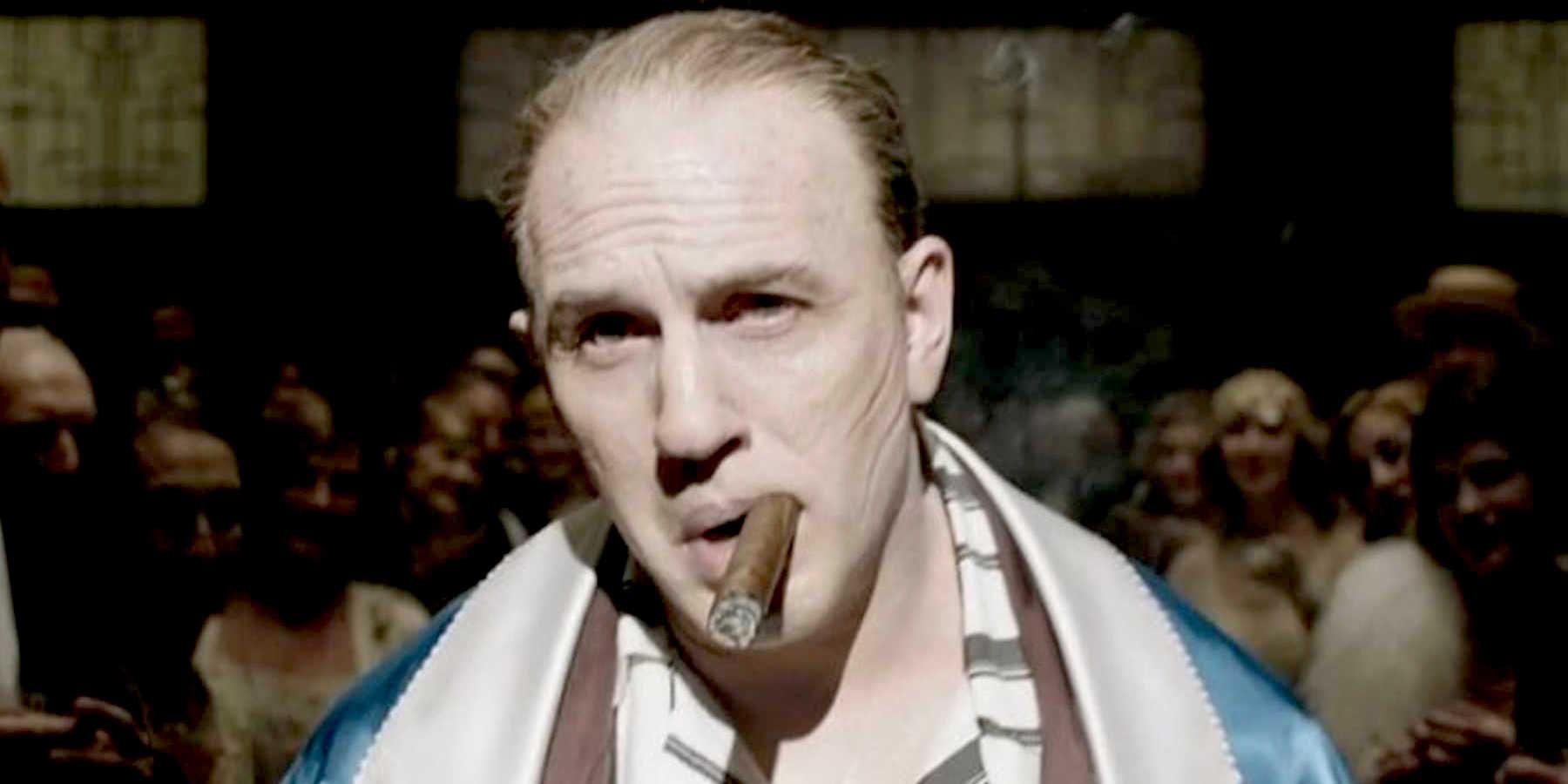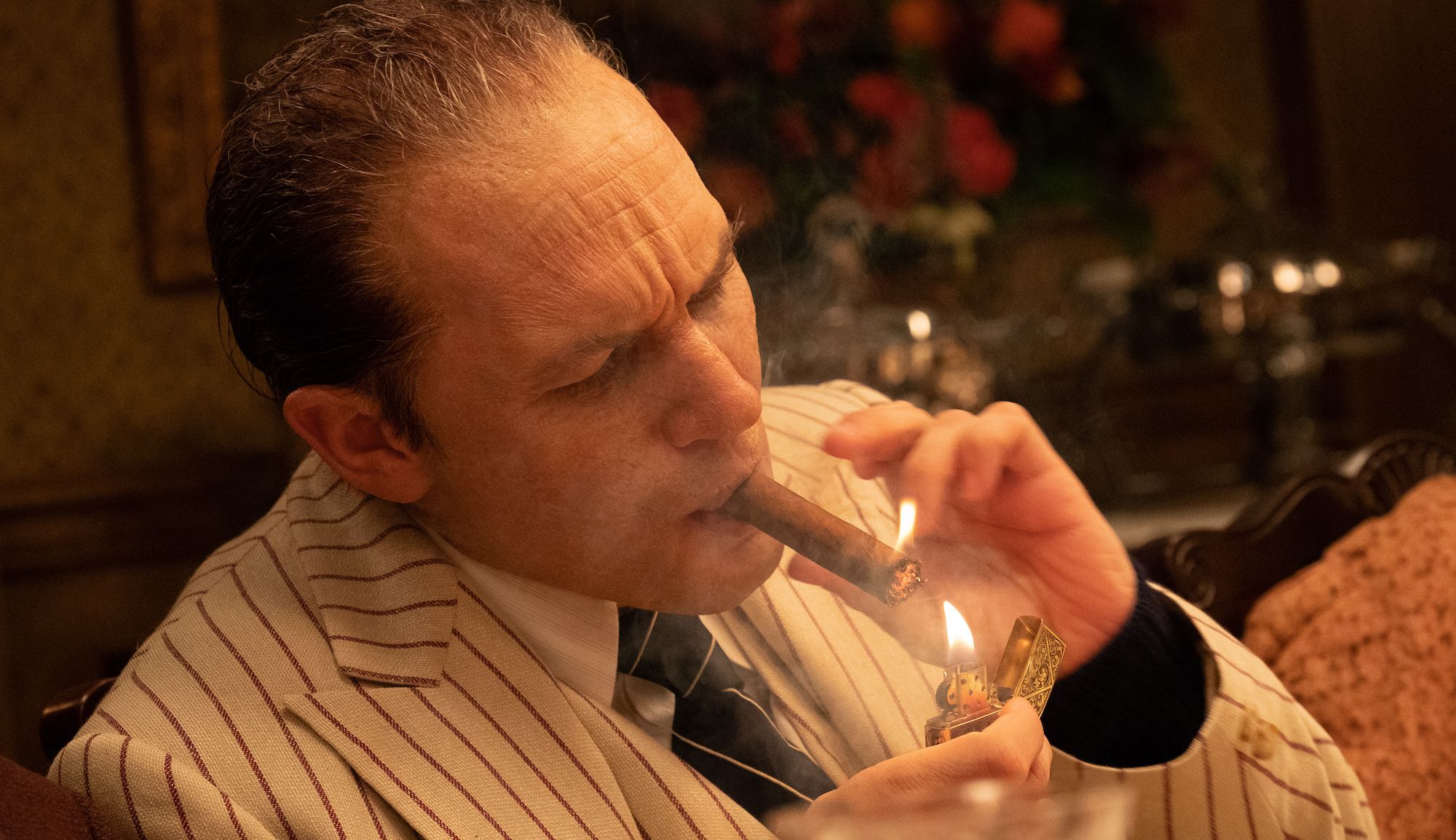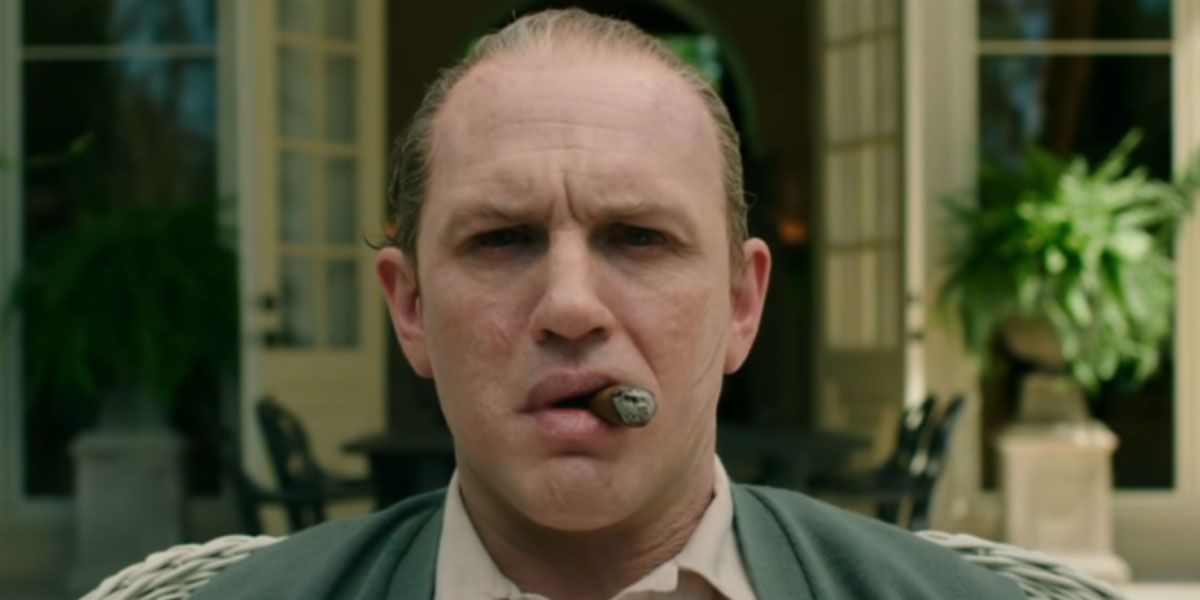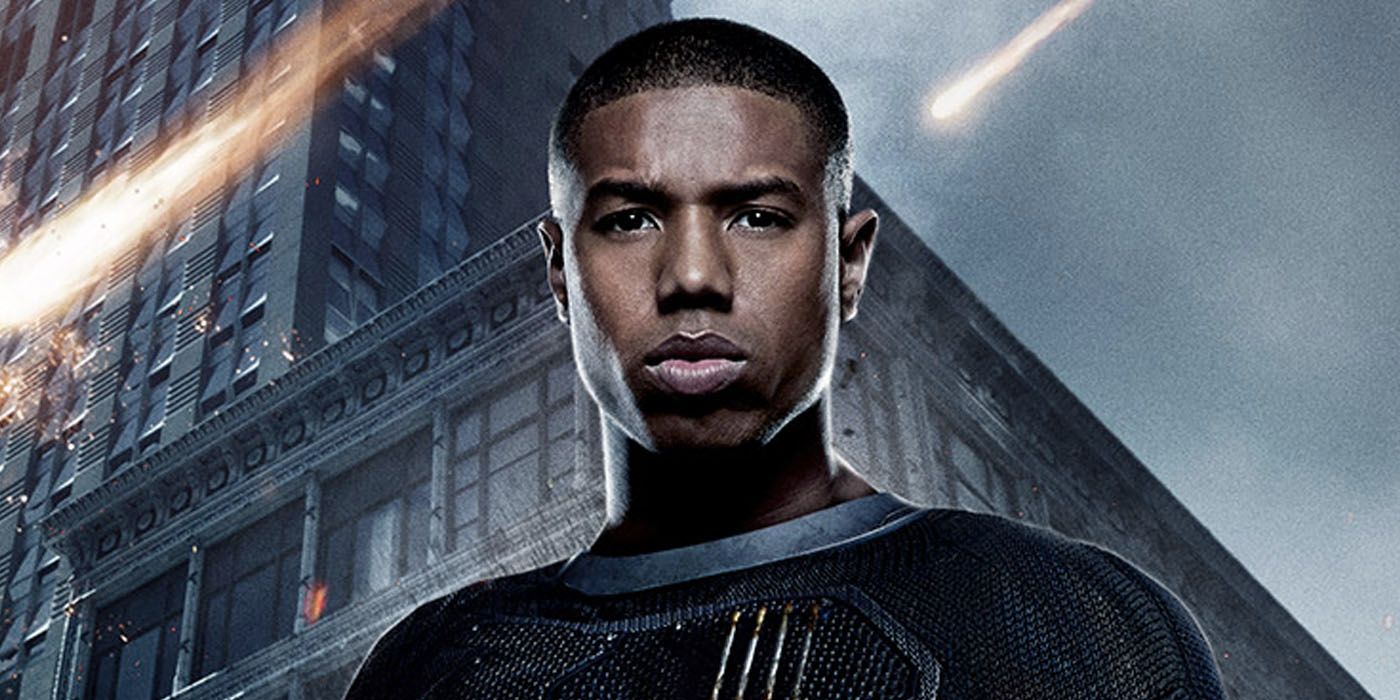Capone writer and director Josh Trank has seen the extremes of Hollywood. When his first low-budget studio movie, Chronicle, came out in 2012, the film's success quickly catapulted him to big-budget projects, including a Star Wars movie and a reboot of Fantastic Four. Yet the fraught production and dismal reception of 2015's Fantastic Four infamously sent Trank crashing back to Earth. Since then, Trank gained the kind of notoriety that seemed to stall his career. However, with the new film Capone, he may finally be bouncing back. An independent film starring Tom Hardy who plays the legendary gangster in the final year of his life, the internal, surreal story feels incredibly personal and specific to Trank.
Trank spoke with CBR about how his experience with Fantastic Four led to Capone, why he's ultimately grateful for the challenges he's faced, and if he'd ever work on a studio movie again.
CBR: Why did you want to make a movie about Capone?
Josh Trank: It’s a long, nuanced answer that I’ll try not to be too long-winded about, but there’s a few reasons. One is just something that I'm always interested in movies is just the deconstruction of myth, the deconstruction of iconic figures, the deconstruction of mythic ideas. I mean, …the finished product of Chronicle was very much the movie that I dreamt of making. And that was a way to deconstruct the myth of superheroes and superpowers in a way that brought it to this very relatable, emotional story of what would happen if these powers were given to this group of boys dealing with typical boy things, and how things would go wrong with that sort of teenage masculinity.
So, with Capone, the end result of this, it’s a deconstruction of both the mythic figure and just the idea of masculinity itself. And it’s sort of… a window into the experience of… somebody who would be perceived as one of the most powerful, feared men in the world being reduced to a near-vegetable state where his own mental faculties are deceiving him. And he’s sort of unable to defend himself and is left frightened and paranoid and contending with lack of his own identity and is confused by his own sense of identity.
That’s how I ended up making Capone, but where it came from was not out of desire to go off and make an Al Capone movie originally. It all started from my own experiences during the fallout of Fantastic Four, and just the weird experience of sitting at home and seeing one story after another coming out about me in ways that I myself didn't remember that way.... The way that situations were being painted about me were not the memory that I had of those situations.
And as the stories piled on and the details were described in ways that became worse and worse and worse, I definitely lost my own sense of identity. And it just sort of left me feeling confused about myself, because I had my own story, I have my own memory of the events that had unfolded during the making of Fantastic Four. And meanwhile everybody else had… their own agreed upon narrative of what they say happened and what I was really like. And at a certain point it was hard for me to know what to believe, and I started to question my own memory.
So when the movie was finally released and I was just sitting in my backyard alone in eerie silence, which was a very big contrast to what life experience with like just [a] mere year before that, I just felt like I’ve got nothing inside of me anymore. I was in a lot of counseling, going to daily therapy, and I just didn't feel anything. I didn't feel depressed, I didn't feel happy, it’s just I didn’t feel anything. But mainly I just didn't know what to think of myself. I didn't know which character I was in any of these stories.
And at a certain point, the seed of an idea came into my head based on input I had read years ago about Al Capone that had always stayed with me of what was going on with him a few years after he was released from Alcatraz and he was contending with neurosyphilis, sitting alone in eerie silence in his own backyard smoking a cigar and just counting his final days. And I wondered what it would have been like for him to flip on the radio and hear a radio play about Al Capone, and to hear stories of himself as a character that he himself doesn't remember being that way. And what his own memories would have felt like about his own self-imposed trauma.
So I just started writing that as a way to resolve my own confusion over what had happened in my own life. And it was a real therapeutic experience. And rather than writing a script where I was trying to make it a great script…, I just wanted to be as honest with myself as possible, and what ended up coming out of it was the script itself.
It’s a very introspective film so I did catch on to a lot of that. Do you feel you could have made this movie this way if you hadn't been through that industry trial by fire?
No, I wouldn’t have. And that’s why I feel, as weird as it sounds, I feel very grateful for what I’ve been through. Because, I've been asked before in the last few days like, “Do you feel responsible for Fantastic Four for what went wrong.” And my answer is of course I do, I feel very responsible for it. I feel as responsible for it as I feel everybody else who worked on that movie was also responsible for it. It was a group effort with… the wrong combination of people.
And what had happened before that movie was Chronicle. A project where it was all the right people who’d come together and created something good. Let’s say Fantastic Four was in the same vein as Chronicle and it was great, like, what true perspective would I have to give to the world as just this continually successful guy? Sure, it would be really nice to be a multi-millionaire right now and not care about anything, but that's not what my path was supposed to be ultimately like.
I really am so grateful that for whatever reason… that fizzle happened the way that it did that I could end up having an experience that allowed me to tap into a story like [Capone]. Because I watched this movie and I get a lot out of it now, and I know that it will ultimately mean something to other people in a way that's much more powerful and important than if I were to have just made a Star Wars movie or something like that. I mean it's great to give the fans what they want, but, you know, this is the kind of film that wouldn't have been possible if I [hadn’t] had really like tough life experiences that humbled me.
And I also think about it like this too: we all have our Fantastic Four. Cynthia, I'm sure you've had a Fantastic Four situation.
Oh, yeah.
Yeah… And that's why, if anything, the publicity behind the Fantastic Four disaster, it led me to believe that I was the only person who had ever felt that way. And… if anything, it made… my life so much more on common ground with the rest of everybody else. I'm just grateful for it. It sounds weird… I've had people be like, “Really?” It's like… that’s not the worst thing that can happen to you.... What I was able to take away from that was a deeper understanding of how corporations work, of how humans behave in high-stakes situations where things go wrong. I could go write a bunch more interesting movies out of this bad experience alone.
Capone is an independent film, unlike Chronicle or Fantastic Four. Would you foresee ever working in the studio system again after this?
I think about that a lot. Because, where everything went wrong with Fantastic Four, everything went right with Chronicle. And to me… the experience of making a movie -- whether it’s Chronicle, or it’s Fantastic Four, or it’s Fonzo [the original title for Capone] -- it’s the same creative feeling of cameras and actors and crew, regardless of where the money is coming from or the development process [happens] in the lofty offices of a massive studio or something like that compared to working with a more independent film studio or set of financiers. To me what really matters at the end of the day is working with the right group of people, regardless of whatever it is, the right group of people on something that matters to me and that group of people and that we all see eye to eye on.
I wouldn't rule out anything as long as it felt right to me. Obviously, I learned a lot, a lot, from Fantastic Four, a very extensive lesson clearly, but one of the things I learned is there were so many red flags. You know, a lack of healthy collaboration early on in that process that I would’ve just walked away from something like that. But that’s not to say that somewhere out there in another studio environment there would be a more healthy combination of people and the right story.
But it's not like I'm out here actively looking to do something like that. In general, I'm a lot more focused on doing something along the lines of [Capone] with these people. I mean… it’s so joyful working with Tom Hardy and Linda Cardellini and Matt Dillon and Kyle MacLachlan and [cinematographer] Peter Deming, and just everybody involved in this project was so lovely and fun and inspiring. And it was just an incredible experience, so I just hope that whatever it is, even if it is a big studio movie, that it's just with a combination of wonderful, inspiring people.
It is a fantastic cast. How did you assemble this group of people?
It was really crazy. When I finished the script, it was very clear to me, and to anybody who’d read it, it's a very challenging central role, the character of Fonze or Capone. And I immediately jumped to Tom Hardy, and I don't think there's anybody else who I can think of who has the level of talent combined with humility that would be able to tap into that character and bring something interesting and as alive as Tom Hardy. But, obviously, in my head I'm thinking there's no way… I don't know him… He didn't know me, I didn't know him. And I thought maybe he had known like I had some big disastrous movie or something like that.
But his agent read the script and told us that he thought Tom would really love it. And so he sent it to Tom. Tom read it the next day. And then the day after that I was on the phone with Tom for about six hours. Clicked instantly. It was really more than I would have ever dreamed of. Just on every level we connected from just our sensibilities, our sense of humor and our ambitions.
So, once Tom got involved, the rest of the pieces really fell in place pretty smoothly and quickly. We went out next to Linda Cardellini because both Tom and I are just huge fans of Linda. And Linda's incredible and so cool and just one of my favorite human beings alive. So she got the script, she loved it, she was excited, she was on board. Bron came on to finance the film.
And every other actor… who came on board after that -- Matt Dillon, Kyle MacLachlan -- these are all actors who I’ve been an enormous fan of for my entire life and I've always wanted to work with and that I dreamed of for these roles after I finished writing the script. So it was just extremely surreal that they all came to the show.
I know Fantastic Four was difficult for a lot of reasons, but one of the things that I would say was a bright spot is casting Michael B. Jordan as Johnny Storm. At the time superhero movies were not known for being particularly diverse, but since then there's been a big push for diversity. So looking back, do you feel vindicated for that casting choice and the difficulties you faced because of it?
It’s hard to say vindicated because I didn’t do anything. I just wanted to work with Michael, because I love Michael and… I couldn't think of anybody better to play that character than Mike. And Mike expressed a ton of interest in it. And… it was kind of after the fact, like once we were like, “OK, let's do this,” then that’s when the whole racial element of it sort of popped up because it wasn't anything that I was really overly aware of.
Like, I don't really think of like Mike being like, “Hey this character’s white but can he be played by a black guy?” What qualities of Johnny Storm necessarily make him inherently white or anything else? He's a charismatic, fun, boisterous bolt of energy. That’s the perfect, awesome role for Michael B. Jordan.
So, obviously, there was a lot of weird backlash to that. All I’ll say is that I truly did not expect the vitriol that came from the comic-book community because I grew up going to San Diego Comic-Con when I was a little kid. And I always thought… that comic-book fans, the ones that I knew growing up, it was like the most open-minded, accepting, cool people who just welcomed everybody and diversity was just there, it was present.
So I was quite shocked at what I saw on all these message boards that were purportedly filled with comic-book fans being completely racist. Like, I just had no idea…. I don't know if they're the ones that are sheltered or if I've been the one who’s been sheltered this whole time but I did not expect that.
So, I see that it still exists today. I mean it's obviously not gone away. To this day, I still get… random either DMs or comments on Twitter or on Instagram with people still coming at me about that.
You’re kidding!
Yeah… it's just mind-blowing. And I can't tell if it's trolling or if it's real at this point. But it's obviously real. It's like racism and sexism and gender, it's all still there, obviously, and it's so sad. But I just hope that as time goes on and the younger generations are growing up with a more diverse array of characters that they're seeing from a time before they grow up to inherit their parents’ generations’ prejudices that it’ll become less and less as time goes on.
But as far as a level of vindication, I don't think too much about that… My main thing is I'm just so excited to see Michael B. Jordan’s success despite the fact that Fantastic Four turned out to not be a success. There wasn't even any sort of sense of a rebound or not a rebound from that, he kept going and he’s doing incredible things. So I guess that's how I feel about it.
Josh Trank's Capone stars Tom Hardy, Linda Cardellini, Jack Lowden, Matt Dillon, Noel Fisher, Kyle MacLachlan, Kathrine Narducci, Tilda Del Toro, Mason Guccione and Caiden Acurio. The movie is available on VOD.




